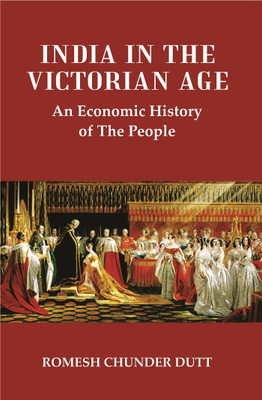India in the Victorian Age : An Economic History of The People(Paperback, Romesh Chunder Dutt)
Quick Overview
Product Price Comparison
About The Book : Men from all British Colonies and Dependencies came together to take part in the Diamond Jubilee of a Great Queen's reign. Indian Princes stood by the side of loyal Canadians and hardy Australians. The demonstration called forth an outburst of enthusiasm seldom witnessed in these islands. And to thoughtful minds it recalled a long history of bold enterprises, arduous struggles, and a wise conciliation, which had cemented a world-wide Empire. Nations, living in different latitudes and under different skies, joined in a celebration worthy of the occasion. One painful thought, however, disturbed the minds of the people. Amidst signs of progress and prosperity from all parts of the Empire, India alone presented a scene of poverty and distress. A famine, the most intense and the most widely extended yet known, desolated the country in 1897. The most populous portion of the Empire had not shared its prosperity: Increasing wealth, prospering industries, and flourishing agriculture, had not followed the flag of England in her greatest dependency.The economic gulf which separates India from other parts of the Empire has widened in the course of recent years. In Canada and other Colonies, the income per head of the population is ┬Ż48 per year. In Great Britain it is ┬Ż42. In India it is officially estimated at ┬Ż2. At the last meeting of the British Association, one of the greatest of British Economists, Sir Robert Giffin, pointed out that this was a permanent and formidable difficulty in the British Empire, to which more thought must be given by our public men, the more the idea of Imperial Unity becomes a working force. Imperial Unity cannot be built on the growing poverty and decadence of five-sixths of the population of the Empire. About The Author : Romesh Chunder Dutt (1848-1909) CIE was an Indian civil servant, economic historian, translator of Ramayana and Mahabharata. Dutt is considered a national leader of the pre-Gandhian era, and was a contemporary of Dadabhai Naoroji and Justice Ranade.He was one of the prominent proponent of Indian economic nationalism. Dutt was born into a distinguished Bengali Maulika Kayastha family. His parents were Thakamani and Isan Chunder Dutt, a Deputy Collector in Bengal, whom Romesh often accompanied on official duties. He was educated in various Bengali District schools, then at Hare School, Calcutta. After his father's untimely death in a boat accident in eastern Bengal, his uncle, Shoshee Chunder Dutt, an accomplished writer, became his guardian in 1861. He wrote about his uncle, "He used to sit at night with us and our favorite study used to be pieces from the works of the English poets."He was a relative of Toru Dutt, one of nineteenth century Bengal's most prominent poets.


